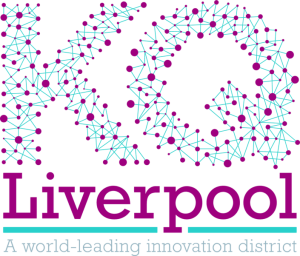The Department for Culture, Media and Sport has awarded The Metropolitan Cathedral of Christ the King in Liverpool Grade I listed status, following advice from Historic England. The cathedral, previously Grade II* listed, is now nationally recognised as a building of the highest architectural and historical interest.
Built between 1962 and 1967, the cathedral represents the greatest Roman Catholic post-war architectural commission in Britain. It was built over an earlier Sir Edwin Lutyens-designed crypt, intended to be part of a grand classical-style Catholic cathedral in Liverpool that began in the 1930s, but construction was halted, largely due to financial constraints and the outbreak of the Second World War.
The upgrade of the cathedral’s listing status reflects a deeper understanding of Sir Frederick Gibberd’s architectural vision and the cathedral’s significance as an international example of progressive Roman Catholic architecture during the mid-20th century.
A revolution in cathedral design
The cathedral’s revolutionary design features make it an architectural landmark of the highest order. Gibberd’s centralised plan with a unified worship space was unprecedented in British cathedral design, allowing congregations to participate more fully in the visual drama of the Mass.
The striking central lantern or ‘corona’ filled with coloured glass by John Piper and Patrick Reyntiens uses an innovative technique of cementing glass with epoxy resin pre-cast within tracery of thin concrete ribs – a method invented specifically for this building.
The cathedral also features numerous artistic collaborations of exceptional quality, including William Mitchell’s Evangelist entrance doors and carving to the bell tower, Elizabeth Frink’s crucifix, David Atkins’ geometrical floor pattern, Ceri Richards’ work in the Chapel of the Blessed Sacrament, and coloured glass by Margaret Traherne in multiple chapels.
This fusion of modern architecture with fine art epitomises the progressive shift following the Second Vatican Council (1962–1965), which emphasised the full, conscious, and active participation of the congregation in Catholic worship.
Hopwood Hall Chapel listing enhancement
Alongside this upgrade, Historic England has enhanced the existing Grade II listing for Hopwood Hall Chapel in Middleton, Greater Manchester. Built in 1964-1965 to Gibberd’s designs and executed by Reynolds and Scott, this smaller chapel shares design features with its more famous Liverpool counterpart, including a centralised sanctuary lit by a lantern tower of concrete and coloured glass.
Sir Frederick Gibberd
Sir Frederick Gibberd (1908-1984), who was knighted in 1967, was a leading figure in the emergence of Modern architecture in Britain. He made major contributions to Britain’s post-war reconstruction and civic design, including Harlow New Town, the first Heathrow terminal buildings, and several power stations.
Sarah Charlesworth, Historic England’s Listing Team Leader North, said:
“Liverpool Metropolitan Cathedral transformed British cathedral design with its revolutionary centralised plan, representing a radical departure from traditional designs. Sir Frederick Gibberd’s masterpiece, built upon Lutyens’ earlier crypt, showcases extraordinary artistic collaboration and stands as one of Britain’s most significant post-war architectural achievements.”
Archbishop John Sherrington, Archbishop of Liverpool, said:
“I welcome the announcement that Liverpool Metropolitan Cathedral of Christ the King has been recognised as a Grade I listed building. It commands the Liverpool skyline and is visible for miles around. The building has been described as ‘the soul of the city’ and brings hope to thousands who visit each year. The colours of the stained glass and revolutionary architectural style help raise their minds and hearts beyond this world to the transcendent and to God.
It is very significant that the cathedral has been recognised during the Jubilee Year which has the theme ‘pilgrims of hope’. I hope the upgraded listed status allows us to welcome even more pilgrims to our striking Mother Church.
I thank all who have contributed to the upkeep and repair of the building for over 60 years and pray that we may care nationally for this building of the highest architectural and historical interest.”
Heritage Minister Baroness Twycross said:
“Liverpool Metropolitan Cathedral’s Grade I status honours Sir Frederick Gibberd’s architectural brilliance and recognises his visionary design, which created a landmark that continues to inspire people. Liverpool’s iconic Cathedral is a truly remarkable and much-loved building which deserves to be protected so it can be enjoyed for generations to come.”
Kim Johnson MP for Liverpool Riverside said:
“I’m absolutely delighted that the Liverpool Metropolitan Cathedral of Christ the King has been awarded Grade I listed status. As a world-renowned and instantly recognisable symbol of Liverpool, it is deeply embedded in our city’s identity. This recognition rightly honours its architectural significance and the prominent place it holds in our skyline – a true jewel in Liverpool’s crown.”
Mayor of the Liverpool City Region, Steve Rotheram, said:
“Liverpool is a city with a proud architectural and cultural heritage, and the Metropolitan Cathedral is one of its most iconic landmarks. The bold, modern design broke new ground and has become a beacon of faith, hope and innovation, not just for our region but across the world.
“This Grade I listing rightly recognises its architectural brilliance and enduring importance to the Liverpool City Region’s identity. It’s a welcome and well-deserved honour.
Leader of Liverpool City Council, Councillor Liam Robinson, said:
“The elevation of the Metropolitan Cathedral to Grade I listed status is a proud moment for Liverpool. This recognition not only honours a masterpiece of modern architecture but also celebrates the spirit of innovation and resilience that epitomises our city. The cathedral stands as a beacon of creativity, community, hope and faith and is a powerful symbol of Liverpool’s cultural and architectural legacy.”
Catherine Croft, Director of the Twentieth Century Society, said:
“The ‘Wigwam’ or ‘The Mersey Funnel’, as it’s affectionately known among locals, is unique in world architecture and has long been a powerful homecoming beacon for Liverpudlians.
Liverpool now rightly has two magnificent Grade I listed cathedrals which together demonstrate just how varied, exciting, and emotionally uplifting twentieth century architecture can be.
A great vessel of post-war glass, sculpture and design, the listing upgrade will help ensure the modernist cathedral’s careful long-term conservation and appreciation by all who visit – to worship or just to marvel.”
The Missing Pieces Project: Add your information about Liverpool Metropolitan Cathedral and Hopwood Hall Chapel
We’d love you to add your story about Liverpool Metropolitan Cathedral and Hopwood Hall Chapel to the Missing Pieces Project. It could be a photo or something you know about the listed building. You can add photos, drawings, audio, film, or text.
Everything you add is an important piece of the picture. And the more pieces of the picture we have, the better we can celebrate and protect what makes these places special.
Through the Missing Pieces Project, Historic England invites everyone to discover the listed places on their doorstep and contribute their own unique piece to the picture by adding photos, videos, stories and memories on the National Heritage List for England.

